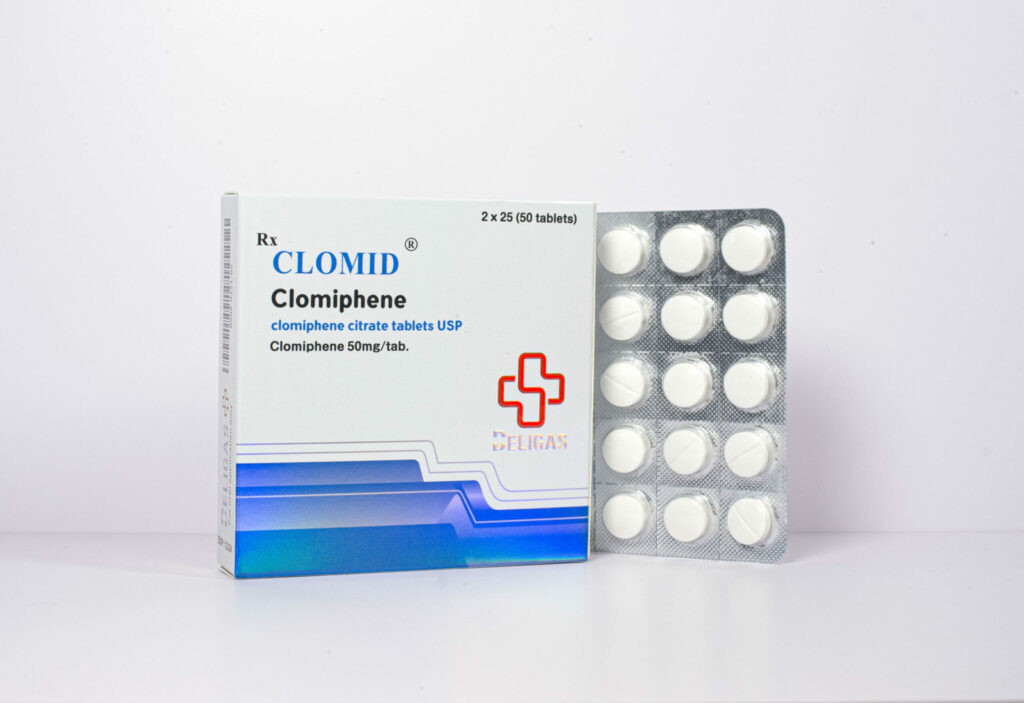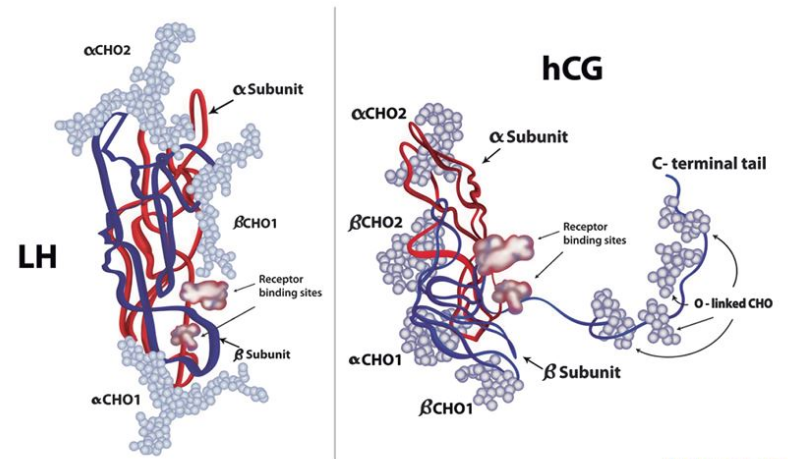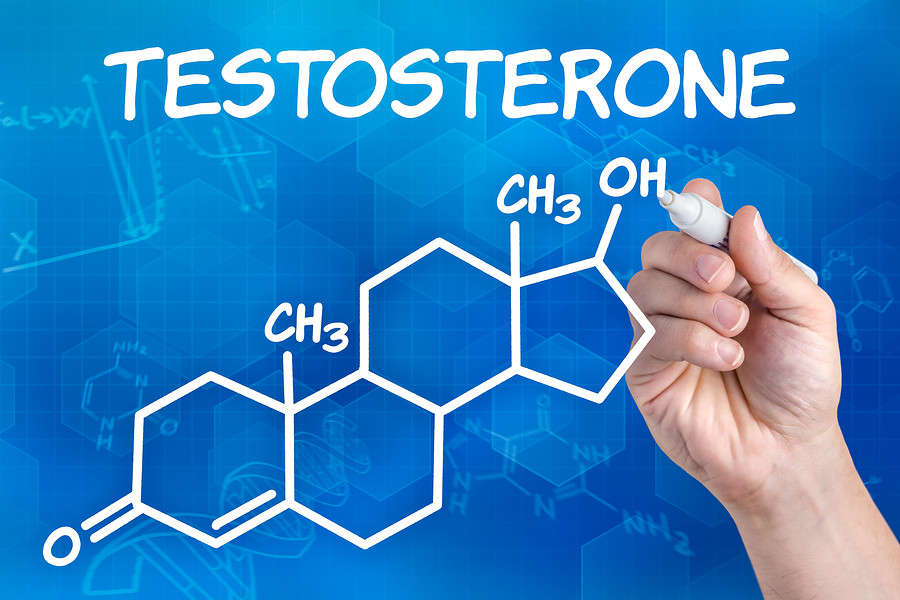Explore the intriguing connection between GLP-1 medications and male fertility.
Understanding GLP-1: What It Is and How It Works
Glucagon-like peptide-1 (GLP-1) is a hormone that plays a crucial role in glucose metabolism and appetite regulation. It is secreted by the L-cells in the intestine in response to food intake, particularly carbohydrates and fats. Once released, GLP-1 promotes insulin secretion from the pancreas, inhibits glucagon release, and slows gastric emptying, leading to increased satiety and reduced food intake.
Interestingly, Glucagon-like peptide-1 is more than just a regulator of blood sugar levels; it has also garnered attention for its potential implications in various physiological processes, including reproductive health. Although its primary functions are well-established, ongoing research seeks to uncover the full range of its biological roles.
Recent studies have indicated that Glucagon-like peptide-1 may also have neuroprotective effects, which could be beneficial in the context of neurodegenerative diseases such as Alzheimer’s and Parkinson’s. By modulating neuronal health and function, Glucagon-like peptide-1 could play a role in reducing the risk or progression of these conditions. Additionally, researchers are exploring how Glucagon-like peptide-1 receptor agonists, which mimic the action of Glucagon-like peptide-1, might be leveraged in therapeutic settings to improve cognitive function and memory in affected individuals.
Moreover, the impact of Glucagon-like peptide-1 extends to cardiovascular health. Evidence suggests that GLP-1 can improve heart function and reduce the risk of cardiovascular diseases, making it a focal point for developing new treatments for patients with diabetes who are at higher risk for heart-related issues. The hormone’s ability to enhance endothelial function and promote vasodilation indicates its potential as a protective factor against heart disease, further emphasizing the importance of understanding its multifaceted roles in human health.
The Role of GLP-1 in Metabolism and Reproductive Health
Metabolism and reproductive health are intricately linked, with hormonal balance playing a pivotal role in male fertility. GLP-1’s involvement in metabolic pathways raises questions about how it may also influence reproductive functions. Preliminary studies suggest that GLP-1 can modulate testosterone levels, which is essential for sperm production and overall male fertility.
Moreover, insulin resistance and other metabolic disorders often associated with obesity can negatively impact sperm quality. Since Glucagon-like peptide-1 improves insulin sensitivity, it is hypothesized that it may serve as a supportive factor in maintaining male reproductive health by addressing underlying metabolic issues.
In addition to its effects on testosterone, Glucagon-like peptide-1 may also influence other hormones that play crucial roles in reproductive health. For instance, studies have indicated that Glucagon-like peptide-1 can affect levels of luteinizing hormone (LH) and follicle-stimulating hormone (FSH), both of which are vital for the regulation of spermatogenesis. By potentially enhancing the secretion of these hormones, GLP-1 could contribute to a more favorable environment for sperm development and maturation, thereby improving fertility outcomes.
Furthermore, the relationship between GLP-1 and metabolic health extends beyond just insulin sensitivity. Emerging research suggests that Glucagon-like peptide-1 may have a role in reducing inflammation and oxidative stress, both of which are known to adversely affect sperm quality. Chronic inflammation, often linked to obesity and metabolic syndrome, can lead to impaired sperm motility and morphology. By mitigating these inflammatory processes, Glucagon-like peptide-1 could provide a dual benefit: enhancing metabolic health while simultaneously supporting reproductive functions, creating a more holistic approach to male fertility management.
Current Research on GLP-1 and Male Fertility
Recent studies have begun to focus on the connection between Glucagon-like peptide-1 and male fertility. Researchers are investigating how Glucagon-like peptide-1 treatment can influence sperm parameters, including motility, vitality, and morphology. For instance, animal studies have indicated that Glucagon-like peptide-1 receptors may be present in the male reproductive system, suggesting a direct action of Glucagon-like peptide-1 on testicular function.

Human studies are also emerging, highlighting correlations between Glucagon-like peptide-1 levels and various aspects of reproductive health. However, more comprehensive studies are necessary to establish cause-and-effect relationships and to better understand the molecular mechanisms involved.
One intriguing aspect of this research is the potential role of Glucagon-like peptide-1 in metabolic health, which is increasingly recognized as a critical factor in male fertility. Obesity and metabolic syndrome have been linked to diminished sperm quality and hormonal imbalances, making it essential to explore how GLP-1, a hormone involved in glucose metabolism and appetite regulation, may help mitigate these issues. Preliminary findings suggest that GLP-1 agonists could improve insulin sensitivity and promote weight loss, thereby possibly enhancing reproductive outcomes in overweight men.
Furthermore, the interaction between GLP-1 and other hormones, such as testosterone, is also a focal point of current investigations. Testosterone plays a vital role in male fertility, and any modulation of its levels by GLP-1 could have significant implications. Researchers are examining whether GLP-1 treatment might influence testosterone production or action within the testes, potentially leading to improved fertility parameters. As our understanding of these complex hormonal interactions deepens, it may pave the way for novel therapeutic approaches to treat male infertility linked to metabolic disorders.
Mechanisms of Action: How GLP-1 May Influence Sperm Production
The exact mechanisms through which GLP-1 may influence sperm production are still under investigation. One proposed mechanism is the regulation of Leydig cells, which are responsible for testosterone production. By enhancing insulin sensitivity and metabolic health, Glucagon-like peptide-1 may indirectly promote a more conducive environment for testosterone synthesis, ultimately supporting spermatogenesis.
Moreover, Glucagon-like peptide-1 is believed to exert antioxidant effects, which can protect sperm from oxidative stress and damage. This antioxidant action may improve sperm quality and boost fertility in males facing oxidative challenges due to lifestyle or health conditions.
In addition to these mechanisms, GLP-1 may also play a role in modulating inflammatory responses within the reproductive system. Chronic inflammation has been linked to impaired fertility, and by reducing inflammatory markers, GLP-1 could help create a more favorable environment for sperm maturation and function. This anti-inflammatory effect might be particularly beneficial for men with conditions such as obesity or metabolic syndrome, where inflammation is often elevated.
Furthermore, the interaction between GLP-1 and the hypothalamic-pituitary-gonadal (HPG) axis is another area of interest. Glucagon-like peptide-1 receptors are present in various brain regions, including those involved in hormone regulation. By influencing the release of gonadotropins, GLP-1 may indirectly affect the stimulation of the testes, enhancing both testosterone production and spermatogenesis. This intricate interplay highlights the potential of GLP-1 not just as a metabolic regulator, but also as a key player in male reproductive health.
Clinical Studies: Evidence Linking GLP-1 to Sperm Quality
Clinical studies exploring the relationship between Glucagon-like peptide-1 and sperm quality are still in their infancy but show promising trends. Some studies have observed that individuals using GLP-1 agonists for diabetes management report improvements in sexual function and, in some cases, fertility parameters.
One notable study indicated enhanced sperm motility in a cohort of diabetic men after three months of treatment with a GLP-1 receptor agonist. While these results are preliminary, they suggest that GLP-1 may have a beneficial effect on male reproductive health.
In addition to sperm motility, researchers are also investigating the impact of Glucagon-like peptide-1 on sperm morphology and overall semen quality. Early findings hint that GLP-1 may play a role in reducing oxidative stress, a known factor that can negatively affect sperm quality. By mitigating oxidative damage, GLP-1 could potentially enhance not just motility but also the structural integrity of sperm cells, which is crucial for successful fertilization.
Moreover, the hormonal interplay involved in GLP-1 signaling is of particular interest. GLP-1 is known to influence insulin secretion and glucose metabolism, both of which are vital for maintaining optimal reproductive function. As metabolic health is closely linked to fertility, understanding how Glucagon-like peptide-1 agonists can improve metabolic parameters might provide further insights into their role in enhancing male reproductive health. This intersection of endocrinology and reproductive biology opens up new avenues for research, potentially leading to novel therapeutic strategies for men facing fertility challenges.
Comparing GLP-1 Effects in Different Populations
It is essential to consider how GLP-1’s effects may vary across different populations, especially among those with distinct metabolic profiles. For example, research shows that obese men may respond differently to Glucagon-like peptide-1 treatments compared to those of normal weight. Various factors, including hormonal balance, genetic predispositions, and lifestyle differences, can influence how Glucagon-like peptide-1 impacts sperm production and quality.
Additionally, age and underlying health conditions, such as metabolic syndrome, also play a role in how effectively GLP-1 can help improve sperm parameters. Understanding these variations is crucial for developing targeted therapies that use GLP-1 to enhance male fertility.
Moreover, the interaction of Glucagon-like peptide-1 with other hormones, such as testosterone and insulin, can further complicate the landscape of male reproductive health. For instance, studies have indicated that GLP-1 may enhance insulin sensitivity, which is particularly beneficial for men suffering from insulin resistance. This improvement can lead to better overall metabolic health, potentially translating into enhanced reproductive outcomes. Furthermore, the timing of GLP-1 administration in relation to meals may also influence its efficacy, as the hormone is known to play a role in appetite regulation and glucose metabolism, both of which are critical factors in male fertility.
In addition, cultural and socioeconomic factors can influence the prevalence of obesity and metabolic disorders within different populations, which in turn affects the general response to Glucagon-like peptide-1 therapies. For example, dietary habits, physical activity levels, and access to healthcare can vary widely, leading to disparities in how populations respond to treatment. This highlights the importance of conducting diverse clinical trials that include participants from various backgrounds to ensure that GLP-1 therapies are effective across different demographic groups. By exploring these multifaceted interactions, researchers can better tailor GLP-1-based interventions to meet the specific needs of diverse populations, ultimately improving male fertility outcomes on a broader scale.
Expert Opinions: What Urologists and Endocrinologists Say
Expert commentary from urologists and endocrinologists underscores the importance of continued research into GLP-1’s role in male fertility. Many express cautious optimism about the potential benefits of GLP-1 treatments in addressing male infertility, particularly in patients with metabolic disorders.
However, experts also stress the need for larger, more rigorously designed clinical trials to clarify whether the observed benefits translate into consistent improvements in sperm quality and fertility outcomes. Until more comprehensive data is available, they advocate a nuanced approach, considering both the advantages and limitations of GLP-1 as a therapeutic option.
Potential Side Effects of GLP-1 Agonists on Reproductive Health
While GLP-1 agonists hold promise for improving metabolic health and potentially enhancing fertility, there are concerns about their side effects. Common adverse effects include gastrointestinal issues, such as nausea and diarrhea, which may discourage some patients from adhering to treatment.
Furthermore, there is ongoing discussion about the long-term impacts of Glucagon-like peptide-1 therapy on male reproductive health. Some experts warn that alterations in hormonal balance may arise with prolonged use, potentially leading to unintended consequences for sperm production. This underscores the necessity for continuous monitoring of patients undergoing GLP-1 treatment, particularly in the context of fertility.
In conclusion, while early evidence suggests that Glucagon-like peptide-1 may have potential effects on sperm quality and male fertility, more research is necessary to fully understand its role and implications. As the exploration of GLP-1’s effects on male reproductive health continues, it holds promise as a therapeutic avenue for enhancing fertility among certain populations.






